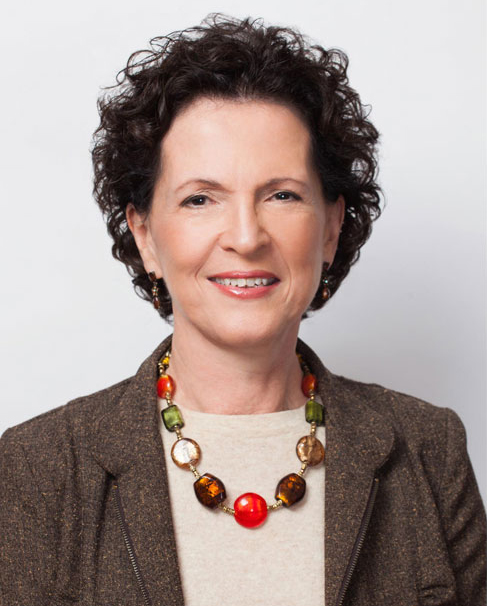
Myra Giberovitch has more than 25 years of experience in gerontological social work practice where she specializes in developing services and programs for survivors of mass atrocity crimes. Giberovitch initiated the first community-based social service program for Holocaust survivors in Canada and subsequently founded Services for Holocaust Survivors at the Cummings Centre in Montreal which she continues to supervise. She has published numerous articles and is an invited speaker at national and international conferences. An adjunct professor, sessional and guest lecturer and field supervisor at the School of Social Work, she is also a licensed social worker with the Quebec Order of Social Workers (OTSTCFQ). She holds a B.S.W. and a M.S.W. from McGill.
On Wednesday, Feb. 19, Giberovitch will discuss her new book, Recovering from Genocidal Trauma: An Information and Practice Guide for Working with Holocaust Survivors. The culmination of a life’s work, the book has been described as “infused with wisdom and insight, . . . reflecting a vast experience and providing a framework for those who work with ageing Holocaust survivors as well as victims of contemporary genocides.”
Recovering from Genocidal Trauma, Wednesday, Feb. 19, 4:30 p.m., the Wendy Patrick Room, 3506 University. RSVP by email asap as seating is limited. For more information, go here.
Why are specialized services for Holocaust survivors needed today?
Most survivors today are in their eighties and, until recently, lived independently and rarely sought assistance. Ageing and associated challenges are affecting their autonomy and forcing them to approach communities and agencies for help, many for the first time. Many service providers are unaware of these survivors’ history and diversity and psycho-social functioning. They also often lack specific knowledge about the impact of ageing on traumatic memory and the existence of specialized survivor assistance resources. This increased demand, however, is causing social service agencies and the healthcare system to explore and address these survivors’ unique needs and to develop specialized services for them in both community and institutional settings.
Why write a book about trauma caused by genocide and war?
While there are many books and articles about the Holocaust, the theory and pathology of severe trauma, the psycho-social effects of such experiences and clinical treatment of associated symptoms, very little has been written about survivors’ adaptation and resilience or about recovery programs. Recovering from Genocidal Trauma fills a gap in the literature. It provides an understanding of Holocaust survivors including how to respond to their unique needs and reveals the necessity for the development of specialized services. It is a comprehensive guide for communities, health care professionals, survivors, academics and students that provides background information about the survivor experience. It suggests creative service models and programs, and describes pragmatic techniques and empowering individual and group interventions that can assist those recovering from tragedy and adversity.
What makes this book unique?
This book is unique because it broadens the perception of survivors beyond that of pathology by discussing the adaptive coping abilities and achievements that co-exist with the physical and psychological vulnerabilities related to their war experiences and the challenges of ageing. It is also guided by the values and principles germane to social work practice as they pertain to trauma and recovery. The discussion builds upon a strengths-based philosophy that begins by listening to Holocaust survivors about their pre-war, wartime and post-war experiences, and learning from them.
Strengths-based practice is person-centered and includes concepts like resilience, empowerment, healing, recovery, transformation and human capabilities (Saleebey, 2006). It asserts that human beings are resilient and continue to learn, grow, and change throughout their lives, despite trauma and hardships (Kisthardt, 2006; Greene, 2010).
In the book, I demonstrate how strengths-based practice operates through detailed descriptions of programs and services that empower and help individuals transcend their experiences. Key practice issues are illustrated with case examples. The book also draws upon current research and practice literature from social work, medicine, neuroscience and gerontology to describe service models, groups, and clinical interventions relevant for service providers who work with survivors in community and institutional settings. I use an ethnographic approach to interweave my experiences as a daughter of Holocaust survivors, as a community advocate, and as a social worker.
Is this book applicable to survivors of other mass atrocities?
Absolutely. The practice philosophy, the service models, and the programs and interventions described in it can be replicated and adapted to survivors of other mass atrocities. Genocide and war did not end with the Holocaust. Mass atrocities continue to take place in many parts of the world. Those of us who work with Holocaust survivors have learned how to respond to individuals traumatized and displaced by war. This book provides a detailed approach that can guide other communities in addressing the needs of its survivors. It sends a message of hope that recovery is possible.

Fantastic article. Thank you for sharing this important information.